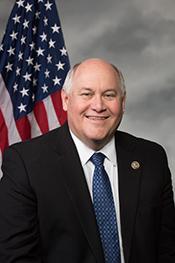Protecting Individuals with Down Syndrome Act
4/1/2025, 11:25 AMCongress
119
Number
HR - 2251
Introduced on
2025-03-21
# Amendments
0
Sponsors

Status of Legislation
Bill Introduced
Introduced to House
House to Vote
Introduced to Senate
Senate to Vote
Purpose and Summary
Referred to the House Committee on the Judiciary.
Bill 119 HR 2251, also known as the "Down Syndrome Discrimination by Abortion Prohibition Act," aims to amend title 18 of the United States Code to prohibit discrimination by abortion against an unborn child on the basis of Down syndrome. This means that it would be illegal for a woman to seek an abortion solely because the fetus has been diagnosed with Down syndrome.
The bill seeks to protect unborn children with Down syndrome from being targeted for abortion simply because of their genetic condition. Supporters of the bill argue that this type of discrimination is unethical and goes against the principles of equality and respect for all individuals, regardless of their abilities or disabilities.
Opponents of the bill, however, argue that it infringes on a woman's right to choose what happens to her own body and her own pregnancy. They believe that women should have the right to make decisions about their own reproductive health without government interference. Overall, the bill raises important ethical and legal questions about the rights of unborn children with disabilities and the rights of women to make decisions about their own bodies. It will be interesting to see how this bill progresses through Congress and what impact it may have on the ongoing debate surrounding abortion rights and disability rights in the United States.
The bill seeks to protect unborn children with Down syndrome from being targeted for abortion simply because of their genetic condition. Supporters of the bill argue that this type of discrimination is unethical and goes against the principles of equality and respect for all individuals, regardless of their abilities or disabilities.
Opponents of the bill, however, argue that it infringes on a woman's right to choose what happens to her own body and her own pregnancy. They believe that women should have the right to make decisions about their own reproductive health without government interference. Overall, the bill raises important ethical and legal questions about the rights of unborn children with disabilities and the rights of women to make decisions about their own bodies. It will be interesting to see how this bill progresses through Congress and what impact it may have on the ongoing debate surrounding abortion rights and disability rights in the United States.
Alternative Names
Official Title as IntroducedTo amend title 18, United States Code, to prohibit discrimination by abortion against an unborn child on the basis of Down syndrome.
Display TitleTo amend title 18, United States Code, to prohibit discrimination by abortion against an unborn child on the basis of Down syndrome.
Official Title as IntroducedTo amend title 18, United States Code, to prohibit discrimination by abortion against an unborn child on the basis of Down syndrome.
Policy Areas
Crime and Law Enforcement
Comments
Most relevant
Recent Activity
Latest Action3/21/2025
Referred to the House Committee on the Judiciary.